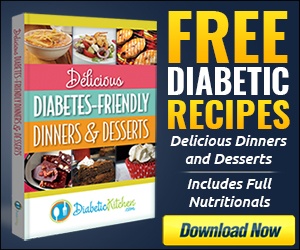Experiencing withdrawal symptoms after quitting certain foods may sound ridiculously dramatic, but it’s all too true. Research has found that after reducing intake of highly processed foods, individuals experienced mood swings, anxiety, headaches, poor quality sleep, and cravings.
These symptoms are also common among people who are in withdrawal from addictive substances like alcohol and tobacco. Evidence that addiction-like withdrawal symptoms can occur due to food choices is big news. Research is finding that not only is food addiction possible, it affects over 70 million adults across the United States.
This statistic has prompted researchers to identify the most addictive foods. One study at the University of Michigan asked 500 people if they had trouble controlling their consumption of any particular foods – from broccoli to pizza. No surprise here! The top addiction-inducing foods were soda, pizza, chocolate, chips, cookies, cake, French fries, and ice cream. Fresh fruits and vegetables were at the very bottom of the list.
The data proves the most addicting foods are highly processed and high in carbohydrate and sugar content. What's worse, researchers pose that not only do sugary foods prompt dependency, but that food manufacturers purposefully add extra sugar to encourage consumers to become dependent upon their products. Talk about scary!
10% of people in the U.S. are addicted to sugar. Sugar induces a reward stimulus in the brain similar to that of illegal drugs. This makes the brain dependent upon sugar, and induces cravings, which in turn, feed the brain’s dependency on sugar. It truly is a vicious cycle.
75% of individuals in the U.S. are consuming too much sugar. Think you aren't being counted in that 75%? One piece of white toast with jam, and one cup of coffee with a teaspoon of sugar contains over half of the daily recommended amount of sugar – and that’s only your breakfast!
Don’t think that by avoiding the lone word ‘sugar' that you're safe. Corn syrup, evaporated cane juice, dextrose, fructose, sucrose, maltose, maltodextrin, all mean sugar. Check your food and beverage labels carefully.
Excess sugar doesn’t just affect your pancreas, insulin and blood sugar levels. It triggers elevations in blood pressure, cholesterol, and heart rate, as well. By quitting sugar, you will not only improve blood glucose levels, but also better heart health. This will reduce risk of heart disease, heart attack, stroke, and a host of other diabetes-related complications.
This study provides even more proof of the connection between what we eat and how we feel. When you consume sugar, you literally feel high. However, the subsequent crash can leave you feeling irritable, sluggish, and tired.
Alternatively, a diet full of fiber, protein, and a ton of healthy fats will yield more energy and a more positive mood (not to mention the improvements to your blood sugar.) We’ve reviewed the benefits of the Ketogenic diet before. It is possible to heal diabetes with food – one study found that while following the Ketogenic diet, 95.2% of Type II diabetics reduced or terminated their need for blood sugar medication within 6 months!
Americans have been brain-washed for decades into believing that fat is bad. However, research continues to prove that fat is essential to good health, and sugar is the true villain. The decision to quit junk food and sugar will have a powerful impact on your health. Yes, the initial withdrawal symptoms are not pleasant. However, they are more than worth it in your journey to long-term better health.
Sources:
https://www.livescience.com/63687-junk-food-withdrawal.html


Leave a Reply